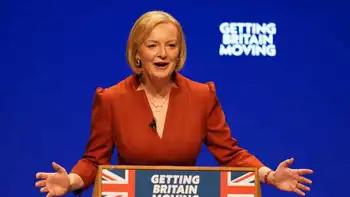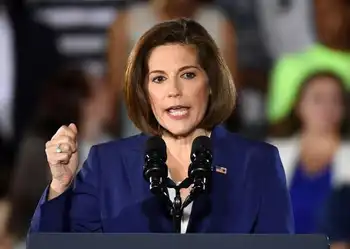California voters turn down plan to limit power sales
SAN JOSE, CALIFORNIA - Voters handily rejected Proposition 80, which sought to impose new rules on California's evolving electricity market.
The ballot measure would have restricted free-market sales of electricity, which supporters said was essential five years after the state's energy crisis.
Instead of voter-imposed rules, the electricity market will now be more firmly in the hands of the state's Public Utilities Commission, which favors a free market approach.
Proposition 80 supporters warned of returning too quickly to a deregulated market. "It's going to take ongoing vigilance... to prevent that," said Bob Finkelstein, executive director of the Utility Reform Network, which drafted the measure.
The most contentious element of the proposition proposed blocking companies, and other institutions from buying electricity through so-called "direct access" contracts - which operate independently of the utility companies. Only those companies that already had such contracts - roughly 11 percent of the state's electricity grid - would have been able to do so.
Consumer advocates and other supporters said the proposition would strengthen PG&E and other utility companies by providing them with more certainty about whom their customers would be years in advance. That information would then guide them in decisions about investing in - or contracting out for - power plants and transmission lines. This process, they say, would stabilize the state's electricity grid.
Critics, including independent energy producers, solar and wind industry groups and even PG&E said the proposition was a crude policy move that would ultimately raise costs, stifle innovation and inflict unintended harm on the state's electricity grid.
Related News

UK price cap on household energy bills expected to cost 89bn
LONDON - Liz Truss’s intervention to freeze energy prices for households for two years is expected to cost the government £89bn, according to the first major costing of the policy by the sector’s leading consultancy.
The analysis from Cornwall Insight, seen exclusively by the Guardian, shows the prime minister’s plan to tackle the cost of living crisis could cost as much as £140bn in a worst-case scenario.
Truss announced in early September that the average annual bill for a typical household would be capped at £2,500 to protect consumers from the intensifying cost of living crisis and a scheduled 80% rise in…




